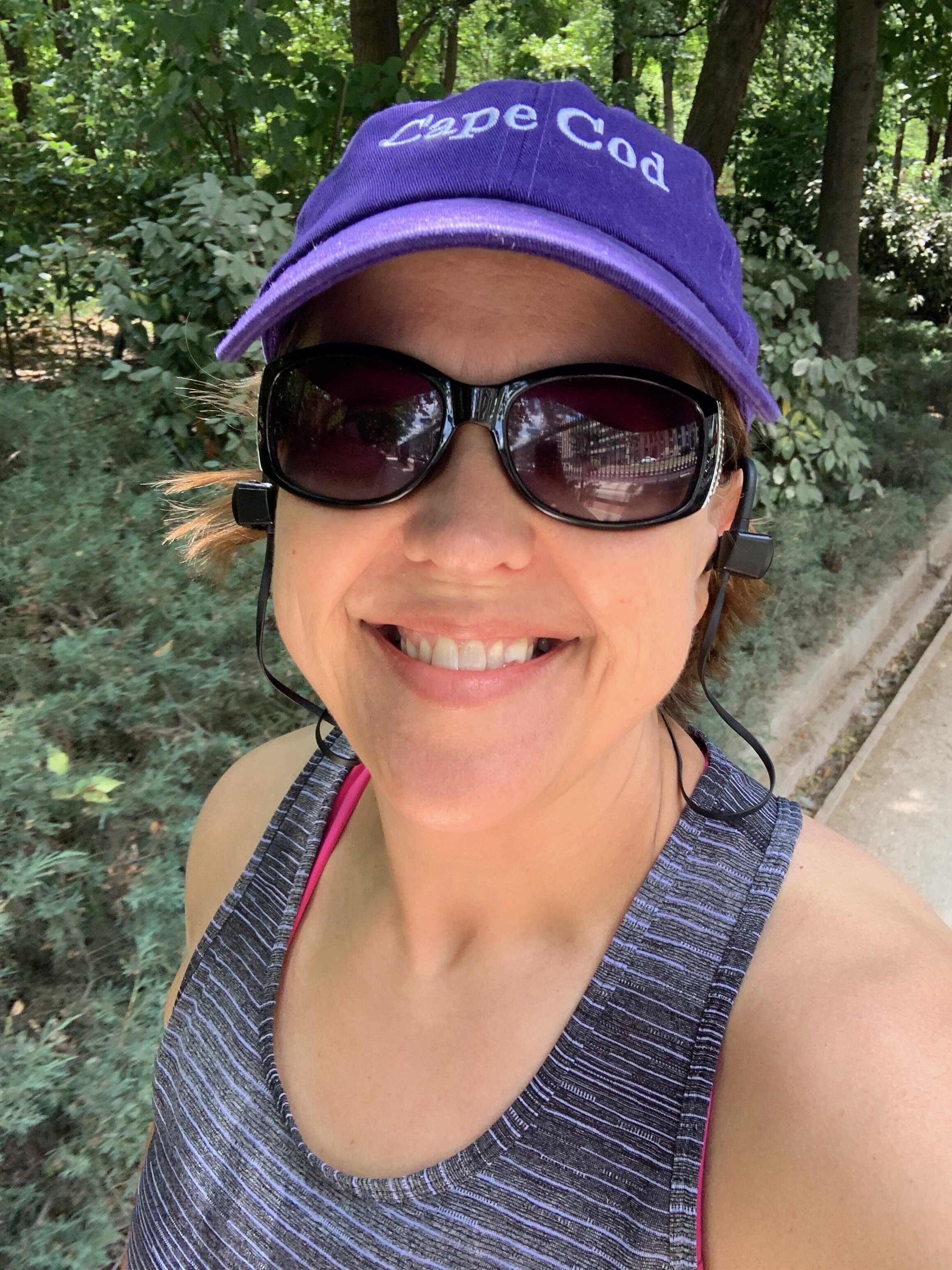Recalibrating… 7 Ways to Get in Gear
Confession time: I’m starting out 2020 about 25 lbs over my goal weight. Even though I’ve had success in weight loss and maintenance over the past few years, I got off-track. I gained some weight in the fall and then got super busy at work; I was only exercising sporadically. I lost my routine, and it shows. Going home for Christmas only made it worse. I had the chance to eat a bunch of Christmas goodies that I didn’t even want to resist, and before I knew it, all those little moments of busyness, apathy, and temptation added up. Specifically, to about 25 lbs, in my case.
So...I decided it’s time to recalibrate. That’s a mechanical word, which means to determine, check, or rectify the settings of an instrument. In my case, it’s time to do all three - determine where I want to be, check on my current habits, and then rectify those areas where I’m not getting the desired results.
This isn’t the first time I’ve faced a “recalibration,” and it probably won’t be the last time that I’ll need to reset and refocus my own habits. Fortunately I’ve learned some tools along the way that helped me lose 115 pounds and change my life completely. And the best part… these 7 ways to get back in gear don’t just apply to health goals. Maybe you’ve gotten off-track in your finances. Perhaps you never read anymore, because you’re bingeing Netflix instead. Maybe you’re just trying to recalibrate your life with new, positive habits like flossing every day or writing that novel you’ve got buried in your soul. These 7 ways to get in gear can help!
Schedule it. On Saturdays or Sundays, I try to look over my week ahead, and I write in my planner when I’m going to work out. I personally use a paper agenda, but even if you use a google calendar, you can learn this little trick of putting in an “appointment” in your schedule. Some other habits in my agenda: when I’m going to fast, when I’m going to volunteer in the community, and when I’m going to enter my receipts in my tracking software. It’s much easier to actually DO when I’ve already booked the time in my daily plan.
Be accountable. The easiest way to be accountable is a habit tracker. This was a huge game changer for me. Once I started tracking how many miles I walked/ran, how often I went to the gym, or whether I was drinking my 8 glasses of water every day, I found I really liked seeing the results of my own progress. There are TONS of habit tracking apps, but if you wanna go old school, you can always make yourself a little star-chart like we had in kindergarten (literally old school!) -- whatever shows you where you’re succeeding!
The second level of accountability is creating a TEAM. You can do that by asking a few friends to join with you or check in with you as you work on those goals. You can also use social media to create a group or a even little following as you get serious about your resolutions. This works really well with health and fitness goals, because we’ve all got that annoying friend posting pics of their ten-mile jog every day. :) You could be that person, posting the mountains you’ve hiked or miles you’ve biked! It even works with other goals. Start posting your experiences, and you’ll get comments from people who have similar goals and interests. You’ll probably even get motivating comments from others who WISH they could do what you’re doing right now.
Start small. I read a GREAT book on mini-habits a few years ago, and *spoiler alert* the idea is basically that we’re more likely to succeed at smaller habits than big ones. We’ve all been guilty of settling a ridiculous goal: I’m going to lose 5 lbs a week! So we starve ourselves on salad, go out running, and after about 3 days of that misery, we’re done. We collapse on the couch and give up, one hand already dialing Pizza Hut delivery while kicking off the running shoes.
But mini-habits are easier to implement and easier to achieve. Whatever big habit you’re trying to build can be broken down into a teeny, tiny daily goals that will be sooooo easy to achieve, you’ll have a 100% success rate. You want to write a novel? Write one paragraph a day. You want to save $5000? Drop your change into a jar every night. Develop that mini-habit, and once you’ve got it solid in your routine, you can add in another mini-step. I know, I know - you’re thinking, “But my change won’t add up to $5K and a paragraph a day would take 20 years to become a novel!” The idea is about SUCCESS. Once you succeed in that mini-habit, you have the confidence and motivation to go further. You see yourself as a master, effective and accomplished, and that mindset allows you to go way further than you thought you ever could. And, because the habit is pretty small, it’s easy to do MORE. Once you start writing your paragraph, maybe inspiration strikes, and you find a few pages flowing out. When you dump out your change, you decide to toss in that $5 bill that you had in your pocket, too. And then you’re proud of yourself because YOU ROCK. Isn’t that a better feeling than “I’m a failure?” Start small and build victories.
Accentuate the positives. For every goal you want to achieve, think about what you already have to help you get there. You’ve got skills, you’ve got expert friends, and you’ve definitely got something in the “positives” column that you can take advantage of to get you to your objective. In my case, I want to lose that 25 lbs I’ve gained, and my positives are these:
I’ve lost weight before, so *I know* I can do it again.
I’ve got friends and family who encourage me.
I live alone, so I don’t have to worry about someone else’s cookies and chips in my cabinets.
I’m a motivated person, and I’m future-oriented.
I live near a world-class park where I can exercise for FREE.
See the pattern? No matter who you are or what your goals are, I guarantee if you think about it enough, you can make a list of the benefits you ALREADY have to get you to the target.
Do what you CAN. It drives me crazy when people say, “I’d love to do what you’ve done, Ariel, but I can’t because… blah, blah, blah.” They list out their excuses: too busy, too tired, too poor, too whatever. And here’s some tough love for ya: I don’t care about why you CAN’T. I live in Europe; that means to get to the gym, I literally pass 73 pastry shops. Well, okay, literally, it’s 9. But still...my point is if I can do THAT, you can improve your discipline, too! Focus on what you CAN do. If you can’t work out 7 days a week because of your schedule, walk around the parking lot during your lunch break, if that’s all you can do. (This goes well with point 3 on making small changes). If you can’t dedicate HOURS to the goals you want to do, find 30 minutes. Diet on Mondays, if you can’t the rest of the week. If that’s all you CAN do, it’s better than nothing, and it’s a START. As your circumstances change, do more. But stop using those excuses to chain you to a life of dissatisfaction.
Do something DIFFERENT. If you want to get different results, you will have to make different decisions. Make literal, physical changes to help you achieve your goals. If you want to eat better, throw away the junk food (and no, I don’t mean eat it all this weekend before the diet starts on Monday). If you want to read more, cancel your Netflix account. If you want to hit the gym after work, pack your gym bag. Go NOW and put it in your car. Put reminders on the bathroom mirror or the kitchen cabinets.
Strategy is stronger than willpower. So create the strategies that will enable your success. Here’s a familiar example: you’re worn out by the end of the workday, and stopping at McDonald’s is the all-too-easy solution. We’ve all been there, my friend. Do something different! Strategize: drive a different way home, even if it’s longer. Put your wallet in the trunk of the car, where it’s inaccessible at a drive-thru! Whatever it takes: change the environment, change your thinking, and eventually you’ll change those habits.
Want it. This is simplistic, yes. But it’s also key. Until you WANT to make these changes, you’ll keep finding reasons NOT to. But when you want it--really want it--you’ll do whatever it takes. Make a list of WHY it matters so much to you. Keep it in your phone, on your desk, or wherever you can read it and remember exactly why you started this recalibration in the first place. Those reasons will help keep you focused and determined. It’s YOUR life; you will always be your best motivator.
I’ll let you know how my “recalibration” goes, and I wish you triumph in yours!


